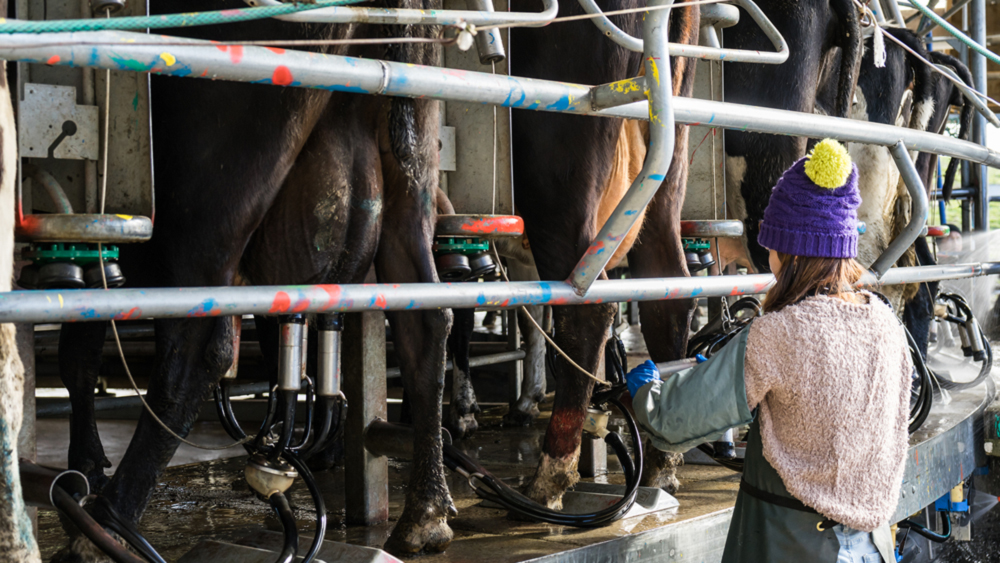- Home
- Dairy farmer: no-deal Brexit case study
Dairy farmer: no-deal Brexit case study
Laura has a herd of 150 cows on her dairy farm in Dorset. Alongside family labour, Laura employs one full-time worker. Laura has a milk contract with a major processor in the region.

What will happen to Laura’s business on Day 1 of a ‘no deal’ Brexit?
Laura is unlikely to experience an immediate and drastic change to her business.
Around 80% of all milk produced in UK is consumed domestically, providing some degree of insulation to dairy farmers such as Laura from the worst effects of a no deal. However, the UK exports around 35% of its cheese production, most of which is to the EU, and so tariffs would restrict this trade.
The UK mainly exports milk from Northern Ireland to the Republic of Ireland for further processing. Export tariffs would lower the competiveness of these exports across the Irish border, leading to reduced exports which could affect prices. Tariffs on cheese and butter exports would also make those exports uncompetitive, as they are much higher in absolute terms than those for milk.
The UK will need Export Health Certificates (EHCs) to export products of animal origin, which includes both fresh and processed dairy products.
The UK government has decided to impose tariffs on certain butter and cheese products, which could provide support to domestic prices. Subsequently, any devaluation of the pound would make exports more competitive and imported goods more expensive.
Could there be issues for Laura in the next 6 months or so?
If UK dairy products can’t be exported to the EU because exports tariffs make them less competitive, there could be a build-up of supplies further along Laura’s supply chain, especially for dairy products where there will be no UK tariffs on imports.
Our latest Brexit impact assessment estimates that English dairy farm business incomes could fall by 22% in 2022 (the first year of cuts to direct payments) under a ‘no-deal’ scenario.
Looking further ahead
Under the new English Agricultural policy, Laura’s farm business income may be supported by funding under “public money for public goods”. However, this is still far from certain as a considerable amount of detail is still missing. What is certain is that direct payments will be progressively removed from 2021 to 2027 and will cease to exist from 2028.
What can Laura do?
The things Laura needs to focus on are the elements that are in her control, such as her business’ ability to adapt and survive these changes. Planning should start now, if this has not already started.
‘Preparing for change: The characteristics of top performing farms’ can also show where small changes on farm can add up to a big business improvement.

